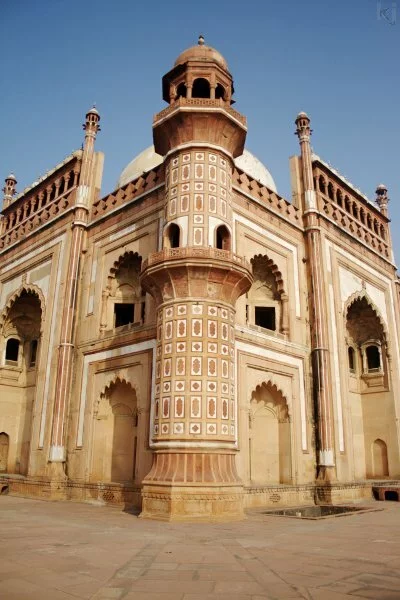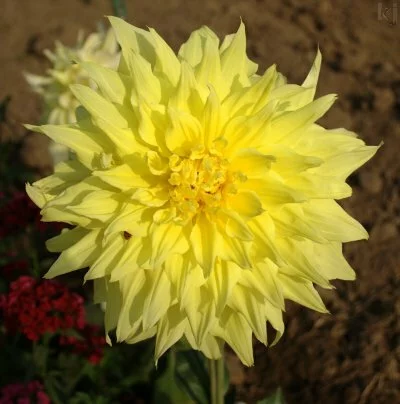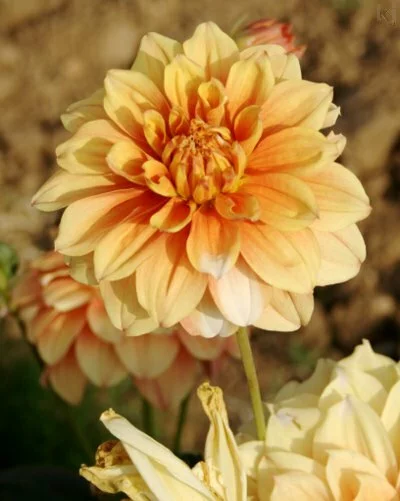Safdarjung
Mirza Muqim Abul Mansoor Khan (1708-54), better known by his title, Safdarjung, was the powerful governor of the province of Awadh and a key member of cabinet under the Mughal emperor Muhammad Shah (1719-48) and later prime minister under his successor, Ahmad Shah Bahadur (1748-54). It is said that by the year 1750, Safdarjung was the most powerful person in the Mughal empire.
Safdarjung’s influence on Delhi is evident from the number of entities named in his honor. There is Safdarjung Road, Safdarjung Airport, Safdarjung Hospital, Safdarjung Development Area and Safdarjung Enclave.
Safdarjung’s Tomb
Safdarjung’s Tomb was built by his son Nawab Shauja-ud-Daulah as a tribute to his father in the year 1754. The monument is a classic example of Mughal architecture. The tomb has a prominent white marble dome, built on a sixteen sided drum. The entrance is through an ornately decorated gateway on the eastern side. The double-storied gateway has apartments, mosque and a courtyard. There are three pavilions, Moti-Mahal, or Perl Palace on the north side, Badshah Pasand, or King’s Favorite on the south and Jangli Mahal or the Sylvan Palace on the west side. There are octagonal towers at the four corners. The garden is known as Char Bagh, or Four Gardens. This is because the garden is divided into four squares by pathways and water tanks.
Safdarjung’s Tomb is the only prominent monument built in the post-Aurangzeb Mughal era. In fact, it is known as the last flicker in the lamp of Mughal architecture
.
Safdarjung's Tomb, another view
Safdarjung’s Tomb is a peaceful and serene place. There is heavy traffic on the roads outside, but once one enters the tomb, the environment is quiet. The breeze is cool and the overall environment is serene.
MORE PICTURES

Octagonal Tower - a closer view

A flower in the garden

Another flower

